16 Amazing Benefits Of Soursop For Skin, Hair, And Health
Try this refreshing and healthy fruit to not only look good but also feel good.

Image: StyleCraze Design Team
The health benefits of soursop make this exotic-looking tropical fruit an excellent addition to your diet. Soursop has been linked to various health benefits, due to its rich antioxidant, vitamin, and mineral content, and is a preferred choice in traditional medicine. The prickly fruit of the soursop tree (Annona muricata), also known as graviola, is large, heart-shaped, and ridged on the outside. Its flesh is soft and juicy. When raw, it is dark green but turns slightly light green as it ripens. This fruit has many similarities to custard apples and cherimoyas in appearance and taste. Its white and sweet pulpy flesh is packed with small black shiny seeds.
There are a few seedless varieties of soursop. The fruit’s creamy texture makes it perfect for beverages, ice cream, and other sweet foods. Its skin is inedible; however, the white fleshy part of the fruit is nutritious. It is not recommended to eat the seeds because they are toxic. Soursop prickles break easily when ripe. It is possible to store underripe fruits in the dark until they fully ripen. This article discusses the benefits of soursop, its nutritional profile, recipes, how to use it, and any potential side effects. Take a look.
 Know Your Ingredient: Soursop
Know Your Ingredient: SoursopWhat Is It?
A tropical fruit native to Central and South America; also known as graviola, custard apple, and Brazilian paw paw.
What Are Its Benefits?
Antioxidant rich, anti-inflammatory, rich in vitamins, and minerals, boosts the immune system, promotes proper digestion and heart health, and treats acne and eczema.
Who Can Use It?
It is generally suitable for everyone.
How Often?
It is generally safe to consume soursop in moderation, as a part of a balanced diet.
Caution
Pregnant or breastfeeding persons as well as people experiencing kidney or liver problems should avoid this fruit.
In This Article
What Does Soursop Do For Your Body?

Soursop contains numerous phytonutrients that can fight disease-causing cells and even certain kinds of tumors. These phytonutrients contain antioxidant properties that enhance the overall health. They help fight cancer, enhance eye health, and treat a range of infections, however there are limited studies for that (1).
But why are we talking about all this? Is soursop that good a fruit?
You bet. Read these graviola benefits and find out for yourself.
Key Takeaways
- The antioxidants in soursop may help fight cancer, reduce inflammation, and is good for eye health.
- Soursop has anti-diabetic properties that might help regulate blood sugar levels.
- The fruit is also good for immunity, gastrointestinal health, and liver and kidney health.
- Soursop has many vitamins and minerals that may help make hair shiny and promote hair health.
- However, pregnant women are advised not to consume this fruit.
Health Benefits Of Soursop
Now, let’s take a closer look at some of the many soursop benefits. know closely what soursop is good for.
1. Soursop Fights Cancer
Though there haven’t been any direct studies on humans, soursop extracts were found to kill certain types of breast and liver cancer cells. A study published in the Iranian Journal of Pharmaceutical Research looked at how soursop (Annona muricata L.) leaf extract (AME) may be used with doxorubicin to fight cancer. Doxorubicin is a drug used in chemotherapy that leads to the aging of cells and may even lead to metastasis and cancer resistance. The results showed that the soursop leaf extract helps make doxorubicin more effective at killing cancer cells. The leaf extract contains phenolic compounds, flavonoids, and acetogenin that affect cancer cells. The extract reduced cell growth, stopped cells from dividing, and lowered the levels of harmful molecules called reactive oxygen species (ROS) This research suggests that soursop leaf extract could be a helpful addition to cancer treatments, especially for triple-negative breast cancer cells (2).
According to one study, the soursop plant is a proven cancer remedy for most types of the disease (3). Though the tests haven’t been conducted on humans yet, the possibilities are promising.
In another Indian study conducted on various cell lines, soursop or graviola leaves showed 80% cell inhibition. The acetogenins in soursop inhibit the harmful compounds in cancer cells (4).
Soursop extract had also inhibited the survival and metabolism of pancreatic cancer cells – and this indicates potential success in curing the lethal disease (5).
What possibly makes acetogeninsi Acetogenins are polyketides (a form of rare lipids) that are naturally occurring in plants in the Annonaceae family, like soursop. unique is their ability to selectively destroy the cancer cells, without harming the healthy ones (6).
2. Improves Eye Health

We have seen soursop is replete with antioxidants. These antioxidants, especially vitamins C and E, zinc, and beta-carotene, have been found to decrease the risk of eye disease. The antioxidants also reduce oxidative stress, which can otherwise cause cataracts andage-related macular degenerationi When part of the retina is damaged it can cause wet (leaky blood vessels) and dry (the retina's core deteriorates) macular degeneration. (7).
3. Helps Fight Inflammation
In a Brazilian study, inflammation caused by snakebite was found to improve with the administration of soursop leave and juice (8). However, the components of soursop might also slightly aggravate the ill effects of snake venom – hence, we need more research in this aspect.
Research in South America and tropical Africa had emphasized on the anti-inflammatory properties of the roots, barks, and leaves of the soursop tree (9). The ability to treat inflammation is good in soursop, and it can be used for relieving arthritis.
In addition to the anti-inflammatory effect, soursop is also known for its analgesici The property of a medication that relieves various types of pain. There are two types: Anti-inflammatory and opioid analgesics. effects. A study in the Journal of Medicinal Food found that soursop (Annona muricata) fruit extract helps reduce pain and inflammation in rodents. The extract showed significant pain relief, similar to morphine. Overall, the study showed that soursop extract has strong pain-relieving and anti-inflammatory properties (10).
 Trivia
Trivia4. Helps Treat Infections
Soursop can treat infections caused by bacteria and parasites, one of those being leishmaniasis, a disease caused by parasites that are transmitted through the bites of sand fleas
(11).
The leaves of the soursop tree are also used to treat a wide range of infections (12).
5. Soursop Aids Diabetes Treatment
According to a Nigerian study, soursop possesses anti-diabetic properties. The two groups of rats tested in the study had a significant difference in their blood glucose concentrations, with the group treated by soursop having lower concentrations than the other (13). However, more research done with human trials is needed to understand this benefit of soursop.
The soursop leaf aqueous extract was found to inhibit (and even prevent) the hepatic oxidative damage caused in diabetes patients (14).
6. Boosts Kidney And Liver Health

As per one Malaysian study, soursop extract was found to be safe in rats that were being treated for kidney and liver ailments. It looked at how soursop leaf extract may protect the stomach from damage caused by alcohol in rats. The extract was found to be safe even at high doses. When given to rats before alcohol exposure, it helped reduce stomach ulcers, showing similar effects as the antiulcer drug omeprazole. The extract boosted antioxidant levels, lowered stomach acid, and protected the stomach lining. This suggests that soursop leaf extract could be useful in preventing stomach ulcers by protecting the stomach from damage (15). Similar observations could be observed in humans as well.
According to another Indian study, the acetogenins in soursop can kill the malignant cells of 12 types of cancer, with liver cancer being one of them (16).
7. Improves Respiratory Health
One Nigerian study states the efficacy of soursop leaves in treating respiratory conditions like asthma (17).
8. Helps Relieve Stress
As per a report by the University of Connecticut, soursop can be used extensively for the treatment of stress and other issues like depression (18).
9. Enhances Gastrointestinal Health
Soursop is also found to have antiulcer properties. The fruit suppresses oxidative damage and preserves the mucus of the gastric wall (19). The significant antioxidant and anti-inflammatory properties of the fruit can help improve gastrointestinal health and aid digestion.
In one Brazilian study, the anthelmintic (the ability to kill parasites) properties of soursop leaf extract were studied (20). They studied the effects of a parasitic worm that caused gastrointestinal issues in sheep. The objective of the study was to inspect the effects of soursop towards the eggs and adult forms of the parasite. The study concluded that soursop is a natural anthelmintic, and since it could kill the parasites in sheep that caused them gastrointestinal issues, it might have similar effects in humans. More research is going on, though.
As per another report, excessive doses of oral iron can lead to gastrointestinal issues. Though soursop is a source of iron, the mineral content in the fruit is not as much as other ingredients – hence, it is unlikely to cause gastrointestinal distress. The same fact, again, could work for the benefit of the individual. For instance, an individual suffering from iron deficiency can be susceptible to anemia, which is known to cause dysfunction of the gastrointestinal system. Though soursop is not an excellent source of iron, it does contain iron – and hence can be a healthy addition to an iron-rich diet to combat anemia (and the resultant gastrointestinal problems) (21).
10. Boosts The Immune System
A Korean study states that the intake of soursop can enhance immunity. This can be attributed to the bioactive compounds in the fruit. Oral intake of soursop leaf extracts was found to reduce edema in rat paws, which is usually caused due to a weak immune system (22). The study concludes by stating that soursop leaf extract has the potential to stimulate immunity, and hence can be used in the treatment of immunocompromised patients. Soursop can also be made a part of the diet to improve the overall lifestyle quality.
The juice of the soursop fruit was found to provide more micronutrients than its pulp. But the pulp has more amount of vitamin A than the juice. Soursop is also rich in ascorbic acid (vitamin C) that strengthens and boosts the immune system (22, 23)
. Beta-carotene, the precursor of vitamin A, also contributes to an enhanced immune system.
Another report published in a journal by The University of West Indies talks about a study where patients with different forms of cancer were given different foods, soursop being one of them. The objective of the experiment, as stated in the report, was to enhance the immune system of the patients (24).
11. Relieves Pain (Works As An Analgesic)
According to ResearchGate, soursop can work as an analgesic. The rats used in the study were made to writhe, post which the soursop extract was induced in them. The experiment produced desirable results (25).
12. Soursop Treats Fever

The soursop or “shawashop” fruit has been traditionally used to treat fever. In Africa, a decoction of soursop leaves is used to control feverish symptoms and convulsive seizures. In fact, the larvae of the Aedes aegypti mosquito (which transmit dengue fever), showed great vulnerability towards soursop extract (26).
As per an Indian study, the soursop fruit and its juice can not only treat fever, but also act as an astringent for diarrhea and dysentery (27). The fruit can help treat fever in children as well; soursop is widely used for this purpose in Africa (28).
13. Treats Diarrhea
All parts of the soursop tree are used as medicine for an array of ailments. And diarrhea is one of them.
14. Aids In The Treatment Of Hypertension
Soursop has been used in folklore for treating hypertension. This can be attributed to the antioxidant potential of phenols in the fruit, according to a Nigerian study (29).
As per an Indonesian study report, soursop contains good nutrients that can help lower blood pressure levels in human adults and prevent heart diseases, such as heart failure or stroke (30).
15. Helps Treat Rheumatism
According to studies, the internal administration of soursop leaf decoction was found to exhibit anti-rheumatic properties. And the leaves, when cooked and topically applied, helped ease rheumatism and abscesses (31).
In Africa, the unripe fruit of soursop is used to treat rheumatism and arthritic pain (32). Even the mashed leaves of the soursop tree are used as a poultice to treat rheumatism.
Soursop also contains anthocyanins, tannins, and alkaloids that exhibit anti-rheumatic effects.
16. Improves Skin And Hair Healthave
As per a report published in the U.S. National Library of Medicine, the extract of soursop leaves can help prevent skin papilloma, a disease that causes tumor eruptions on the skin (33).
In fact, soursop is so good for the skin that the leaves of the plant are used for calming the skin of babies (34). Certain sources also suggest soursop paste can work wonders for hair – by treating dandruff and itching, and strengthening hair as well. But we need more research on these soursop benefits.
So, now you know what the benefits of soursop are, let’s learn how to incorporate soursop into your diet in the next section. Keep reading!
How To Incorporate Soursop Into Your Diet
- Blend yogurt, banana, and coconut water with fresh soursop to create a nutrient-dense smoothie.
- Mix soursop juice with other fruit juices like pineapple or orange for a delicious drink.
- Bake soursop into muffins, cakes, or bread for a tropical flair.
- Use soursop in desserts like sorbets, ice creams, or puddings.
- Add diced soursop to fruit or green salads for a unique flavor and texture.
- Incorporate soursop puree into soups or sauces for a tropical twist.
Now that you know how to enjoy soursop in your meals, it is worth exploring its nutrient content to understand its full potential. Scroll down to learn the nutritional breakdown of soursop.
Soursop Nutrition Facts
Check out here what are the soursop nutritional benefits in detail.
Soursop contains abundant amounts of vitamin C and several B vitamins like thiamin, riboflavin, and niacin as well as minerals like calcium, phosphorus and a small amount of iron. The fruit comprises of 67.5% pulp, 20% fruit skin, 8.5% fruit seeds and 4% core pieces. Know about nutritional benefits of soursop fruit.
| Nutritional value per 100 g (3.5 oz) | |
|---|---|
| Energy | 276 kJ (66 kcal) |
| Carbohydrates | 16.84 g |
| Sugars | 13.54 g |
| Dietary fiber | 3.3 g |
| Fat | 0.3 g |
| Proteint | 1 g |
| Thiamine (vit. B1 | 0.07 mg (6%) |
| Riboflavin (vit. B2) | 0.05 mg (4%) |
| Niacin (vit. B3) | 0.9 mg (6%) |
| Pantothenic acid | 0.253 mg (5%) |
| Vitamin B6 | 0.059 mg (5%)g |
| Folate | 14 μg (4%) |
| Choline | 7.6 mg (2%) |
| Vitamin C | 20.6 mg (25%) |
| Calcium | 14 mg (1%) |
| Iron | 0.6 mg (5%) |
| Magnesium | 21 mg (6%) |
| Phosphorus | 27 mg (4%) |
| Potassium | 278 mg (6%) |
| Sodium | 14 mg (1%) |
| Zinc | 0.1 mg (1%) |
Intake of soursop seeds is not advised due to the presence of antinutrients. However, cooking the seeds can reduce the concentration of these compounds and help one reap the benefits of these seeds.
The following graph showcases the nutritional values of the various vitamins in both raw and cooked soursop seeds. While cooking reduces the amount of vitamins present, it also reduces the antinutrients.
Nutrition Profile Of Soursop Seeds (Raw Vs. Cooked)
Source: Nutritional Profile and Determination of the Biological Value of the Raw and Cooked Soursop SeedsAh well, we have seen the rosy part of the fruit till now. Now it’s time to peer at the other side.
Soursop Side Effects
Like every other food we know of, there are side effects of soursops as well. Read on to know them all!
Jesse Feder, Clinical Dietitian with the Memorial Regional Hospital South, says, “Eating large amounts of soursop has been linked to nerve changes and potentially contributes to nerve disorders.” He adds, “Soursop allergies are not common but can present as normal food allergies, such as hives, itching, swollen mouth, etc.”
Let’s take a look at the common side effects of soursop:
- Eye Inflammation
The seeds and bark of the soursop tree are considered toxic. They contain potentially poisonous compounds like anonaine, hydrocyanic acid, and muricine. These can cause eye inflammation (35).
-
- Issues With Pregnancy And Breastfeeding
Pregnant women are advised against consuming this fruit. This is because the high energy in the cells of the developing fetus can trigger the fruit’s toxic activity – potentially harming the baby and the mother, with the baby at a greater risk.
Using soursop while pregnant or breastfeeding may be unsafe. However, a study suggest that the flesh of the fruit may help increase breast milk production after childbirth (36). So, consult your doctor before consuming the fruit if you are pregnant.
- Drastic Weight Loss
As per a study, consuming soursop had resulted in drastic weight loss in the mice that were involved in the experiment (37). Similar effects can be observed in humans. Hence, consult your doctor if you are planning to take soursop for any issue specifically related to your body weight.
- Parkinson’s Disease
As per one French study, consuming soursop can result in the development of Parkinson’s disease (38).
Additionally, anecdotal evidence suggests that soursop may interact with blood thinners and diabetes medication. However, limited data is available to prove these claims.
All this, only if you consume soursop in excess. Otherwise, soursop or guanabana benefits are plenty. And you can use it in some awesome recipes too.
Any Soursop Recipes To Try?

1. Soursop Milkshake
What You Need
- A cup of milk
- 1/2 cup of soursop pulp
- 7-8 ice cubes
- 1 1/2 teaspoons of sugar
- 1/2 teaspoon of pistachio, for garnish
Directions
- Cut the soursop fruit into half. Scoop the pulp out and remove the seeds.
- Add all the ingredients to a blender and make a smoothie.
- Pour the smoothie into a serving glass.
- Garnish with pistachios.
When you grind the ice cubes along with the other ingredients, you get a perfectly chilled smoothie. You can even add nuts to the smoothie – it instantly becomes more nutritious and delectable.
 Quick Tip
Quick Tip2. Chilled Soursop Drink
What You Need
- 1 soursop fruit, peeled, cut into chunks
- 2 tablespoons of sugar
- 1 1/2 cups of milk
- 1/2 teaspoon of ground cinnamon
- 2 teaspoons of vanilla extract
- 1/4 teaspoon of ground nutmeg
Directions
- Work in batches. Press the soursop chunks against a fine mesh strainer using the back of a spoon or a ladle. Let the juice fall into a bowl.
- Add the other ingredients to the bowl and whisk thoroughly. Pour the drink into a pitcher and refrigerate it.
3. Soursop Tea
What You Need
- 2 to 3 soursop leaves (the younger ones, which have a lighter shade of green)
- 1 1/2 cups of water
Directions
- Add the water to a pot and bring it to a boil.
- Tear the leaves into smaller pieces.
- Place the leaves in your tea cup and pour boiling water in it. Let it sit for about 30 minutes.
- You can drink the tea warm or cold. Add honey if you want it a little sweet.
4. Soursop Ice Cream
What You Need
- 1 cup of cream
- 3 cups of soursop pulp
- 1/4 cup of inverted sugar syrup
- 1 1/2 cups of fresh milk
- 1 teaspoon of vanilla extract
- 1/2 teaspoon of lime juice
- Eggs, as required
Directions
- In a medium-sized pot over medium heat, place the pulp, cream, and milk. Wait until it boils. Keep stirring to prevent the ingredients from sticking to the pot.
- Remove from the heat.
- Whip the eggs along with the inverted sugar syrup until it turns creamy.
- Mix the soursop cream with the egg cream. Heat until it boils again. Keep stirring occasionally. Remove from the heat.
- Whip the entire mixture with a hand mixer until it turns creamy.
- Let it cool down. Place it in a glass container and put it in the freezer.
- Every hour, remove from the freezer and whip quickly, and then return it to the freezer. Repeat this 4 to 5 times. The mixture must attain the consistency of ice cream.
- You can refrigerate the ice cream in a glass container (must be sealed).
You can prepare the inverted sugar syrup using 2 pounds of sugar, 2 cups of water, and 1/4 teaspoon of cream of tartar. Mix all the ingredients and bring them to a boil. Remove the cover and let it cool completely.
The recipes will come out better if you pick the right soursop. Which is why we have the next section.
How To Select And Store Soursop?
Pretty simple.
Choose fruits with dark green skin. They also must have numerous fleshy spines on the surface. Avoid fruits with bruises or blemishes on the skin.
Storing is simpler.
Store the unripe fruit at room temperature. Once the fruit is ripe, store it in the refrigerator for up to 2 days.
Jesse Feder says, “There are several varieties of soursops available in different regions of the world. However, the most popular ones are the sweet and sour ones, with very similar health benefits.”
And eating the fruit is quite fun! All you have to do is cut the fruit in half using a kitchen knife. Scoop the insides with a spoon, and eat your way to glory!
Soursop is often compared with custard apple. While the two have important benefits, they also differ from each other in certain ways. Learn more about the same in the next section.
Soursop Vs. Custard Apple
Soursop is a large, heart-shaped fruit with a sweet and tangy taste and fibrous flesh. A custard apple is smaller and rounder with a sweet, custard-like texture and a flavor reminiscent of a banana, pineapple, or a strawberry.
Soursop is native to the Americas and is also found in parts of Africa and Southeast Asia. Custard apples are native to Central and Southern Americas.
Soursop has a higher phosphorus and vitamin C content, whereas custard apples have a higher calcium and potassium content (39), (40). You can use both fruits in your smoothies, salads, and desserts as per your taste or dietary preference.
Infographic: How To Peel And Cut Soursop Fruit
From treating fever to improving eye health, soursop has several benefits for your health. You can consume this fruit and make delicious dishes with the aforementioned recipes. However, the peel and seeds are not edible and must be removed carefully. Check out the following infographic to learn how to peel and cut the soursop fruit. Illustration: StyleCraze Design Team

Soursop, or graviola, is a heart-shaped fruit with a sweet white pulp inside its green prickly skin. It is a good source of phytonutrients, vitamins C and B, and minerals such as calcium and iron. The many health benefits of soursop can be attributed to its rich nutrient profile. Soursop may help promote gut, eye, kidney, and liver function as well as lower bad cholesterol. It is a natural antibacterial and anti-inflammatory agent that may help relieve pain. It is good for your hair and skin too. However, excess consumption may cause a few side effects such as eye inflammation, drastic weight loss, or in certain cases, an increased risk of developing Parkinson’s disease. Since the safety standards have not been determined, pregnant and breastfeeding women or people with any health conditions should consult a doctor before consuming it.
Frequently Asked Questions
Can you drink soursop tea every day?
The potency of soursop leaves is a little stronger when compared to other teas. Therefore, it is not safe for humans to drink every day as a supplement.
Does soursop make you sleepy?
Yes, the leaves of soursop are used to treat insomnia (sleep disorder) (41).
What is the best time to drink soursop tea?
The best time to drink soursop tea is in the morning.
Is soursop acidic or alkaline?
Soursoup is alkaline when fresh.
Illustration: Amazing Benefits Of Soursop For Skin Hair & Health

Image: Stable Diffusion/StyleCraze Design Team
Discover the tropical delight of soursop! Check this delightful video tutorial to learn how to properly enjoy this unique fruit- from selecting the perfect one to savoring its delicious flavors.
References
Articles on StyleCraze are backed by verified information from peer-reviewed and academic research papers, reputed organizations, research institutions, and medical associations to ensure accuracy and relevance. Read our editorial policy to learn more.
- Soursop leaves (Annona muricata L.) endophytic fungi anticancer activity against HeLa cells
https://www.ncbi.nlm.nih.gov/pmc/articles/PMC9256652/ - Synergistic cotreatment potential of soursop (annona muricata l.) leaves extract with doxorubicin on 4t1 cells with antisenescence and anti-reactive-oxygen-species properties
https://www.ncbi.nlm.nih.gov/pmc/articles/PMC8457719/ - Cancer: forbidden cures?
https://www.ncbi.nlm.nih.gov/pmc/articles/PMC4319340/ - Anti cancer activity on Graviola an exciting medicinal plant extract vs various cancer cell lines and a detailed computational study on its potent anti-cancerous leads
https://pubmed.ncbi.nlm.nih.gov/23889049/ - Graviola: a novel promising natural-derived drug that inhibits tumorigenicity and metastasis of pancreatic cancer cells in vitro and in vivo through altering cell metabolism
https://pubmed.ncbi.nlm.nih.gov/22475682/ - Antiproliferative activity and induction of apoptosis by Annona muricata (Annonaceae) extract on human cancer cells
https://www.ncbi.nlm.nih.gov/pmc/articles/PMC4324658/ - Antioxidant supplements: what you need to know
https://www.nccih.nih.gov/health/antioxidant-supplements-what-you-need-to-know - Milk thistle and cancer
https://www.cancerresearchuk.org/about-cancer/treatment/complementary-alternative-therapies/individual-therapies/milk-thistle-and-liver-cancer - Annona muricata (annonaceae): a review of its traditional uses isolated acetogenins and biological activities
https://www.ncbi.nlm.nih.gov/pmc/articles/PMC4519917/ - Mechanisms of analgesic and anti-inflammatory properties of Annona muricata Linn. (Annonaceae) fruit extract in rodents
https://pubmed.ncbi.nlm.nih.gov/25133801/ - Pharmacological activities of soursop (annona muricata lin.)
https://www.ncbi.nlm.nih.gov/pmc/articles/PMC8878098/ - Graviola: a novel promising natural-derived drug that inhibits tumorigenicity and metastasis of pancreatic cancer cells in vitro and in vivo through altering cell metabolism
https://www.ncbi.nlm.nih.gov/pmc/articles/PMC3371140/ - Anti hyperglycemic activities of Annona muricata (Linn)
https://pubmed.ncbi.nlm.nih.gov/20162043/ - Protective effects of annona muricata linn. (annonaceae) leaf aqueous extract on serum lipid profiles and oxidative stress in hepatocytes of streptozotocin-treated diabetic rats
https://www.ncbi.nlm.nih.gov/pmc/articles/PMC2816529/ - Gastroprotective activity of Annona muricata leaves against ethanol-induced gastric injury in rats via Hsp70/Bax involvement
https://www.ncbi.nlm.nih.gov/pmc/articles/PMC4218895/ - Polyketide natural products acetogenins from graviola (annona muricata l) its biochemical cytotoxic activity and various analyses through computational and bio-programming methods
https://pubmed.ncbi.nlm.nih.gov/27262333/ - Mechanisms of analgesic and anti-inflammatory properties of annona muricata linn. (annonaceae) fruit extract in rodents
https://www.ncbi.nlm.nih.gov/pmc/articles/PMC4259190/ - Neuroprotective natural products’ regulatory effects on depression via gut–brain axis targeting tryptophan
https://www.ncbi.nlm.nih.gov/pmc/articles/PMC9413544/ - Gastroprotective activity of Annona muricata leaves against ethanol-induced gastric injury in rats via Hsp70/Bax involvement
https://www.ncbi.nlm.nih.gov/pmc/articles/PMC4218895/ - In vitro anthelmintic activity of aqueous leaf extract of Annona muricata L. (Annonaceae) against Haemonchus contortus from sheep
https://pubmed.ncbi.nlm.nih.gov/23583362/ - Anemia Testing in Population-Based Surveys
https://pdf.usaid.gov/pdf_docs/Pnacu441.pdf - Immunomodulatory efficacy of standardized annona muricata (graviola) leaf extract via activation of mitogen-activated protein kinase pathways in raw 264.7 macrophages
https://www.ncbi.nlm.nih.gov/pmc/articles/PMC5209628/ - Vitamin c and immune function
https://www.ncbi.nlm.nih.gov/pmc/articles/PMC5707683/ - Herbal Medicine Use among Puerto Rican Cancer Patients
https://www.mona.uwi.edu/fms/wimj/article/3037 - The Analgesic Effect of Ethanol Extract Soursop (Annona muricata L.) Leaves in Wistar Rats
https://www.researchgate.net/publication/332226223_The_Analgesic_Effect_of_Ethanol_Extract_Soursop_Annona_muricata_L_Leaves_in_Wistar_Rats - Annona muricata (annonaceae): a review of its traditional uses isolated acetogenins and biological activities
https://www.ncbi.nlm.nih.gov/pmc/articles/PMC4519917/ - Antioxidant dna protective efficacy and hplc analysis of annona muricata (soursop) extracts
https://www.ncbi.nlm.nih.gov/pmc/articles/PMC4375238/ - Annona muricata
https://hort.purdue.edu/newcrop/morton/soursop.html - Distribution of phenolic contents antidiabetic potentials antihypertensive properties and antioxidative effects of soursop (annona muricata l.) fruit parts in vitro
https://pubmed.ncbi.nlm.nih.gov/26788368/ - The effect of soursop ( anonna muricata linn.) in decreasing Blood pressure of adult female
https://repository.maranatha.edu/12875/10/1110238_Journal.pdf - Annona muricata (annonaceae): a review of its traditional uses isolated acetogenins and biological activities
https://www.ncbi.nlm.nih.gov/pmc/articles/PMC4519917/ - Mechanisms of analgesic and anti-inflammatory properties of Annona muricata Linn. (Annonaceae) fruit extract in rodents
https://pubmed.ncbi.nlm.nih.gov/25133801/ - Chemopreventive potential of Annona muricata L leaves on chemically-induced skin papillomagenesis in mice
https://pubmed.ncbi.nlm.nih.gov/22938417/ - Ethnobotanical survey of cosmetic plants used in Marquesas Islands (French Polynesia)
https://www.ncbi.nlm.nih.gov/pmc/articles/PMC5129640/ - Soursop
https://www.ctahr.hawaii.edu/oc/freepubs/pdf/F_N-22.pdf - Pharmacological activities of soursop (annona muricata lin.)
https://www.ncbi.nlm.nih.gov/pmc/articles/PMC8878098/ - Synergistic interactions among flavonoids and acetogenins in Graviola (Annona muricata) leaves confer protection against prostate cancer
https://www.ncbi.nlm.nih.gov/pmc/articles/PMC4566098/ - Is atypical parkinsonism in the Caribbean caused by the consumption of Annonacae?
https://pubmed.ncbi.nlm.nih.gov/17017523/ - Soursop raw
https://fdc.nal.usda.gov/fdc-app.html#/food-details/167761/nutrients - Custard-apple, (bullock’s-heart), raw
https://fdc.nal.usda.gov/fdc-app.html#/food-details/171725/nutrients - Pharmacological activities of soursop (annona muricata lin.)
https://www.ncbi.nlm.nih.gov/pmc/articles/PMC8878098/
Read full bio of Jess Wharton
- Jesse Feder, RDN/LDN, is a Clinical Dietitian at the Memorial Regional Hospital. He is also a certified by the American College of Sports Medicine as a personal trainer (ACSM-CPT) and the National Strength and Conditioning Association as a Certified Strength and Conditioning Specialist (NSCA-CSCS).
 Jesse Feder, RDN/LDN, is a Clinical Dietitian at the Memorial Regional Hospital. He is also a certified by the American College of Sports Medicine as a personal trainer (ACSM-CPT) and the National Strength and Conditioning Association as a Certified Strength and Conditioning Specialist (NSCA-CSCS).
Jesse Feder, RDN/LDN, is a Clinical Dietitian at the Memorial Regional Hospital. He is also a certified by the American College of Sports Medicine as a personal trainer (ACSM-CPT) and the National Strength and Conditioning Association as a Certified Strength and Conditioning Specialist (NSCA-CSCS).
Read full bio of Ravi Teja Tadimalla
Read full bio of Arshiya Syeda
Read full bio of Sindhu Koganti







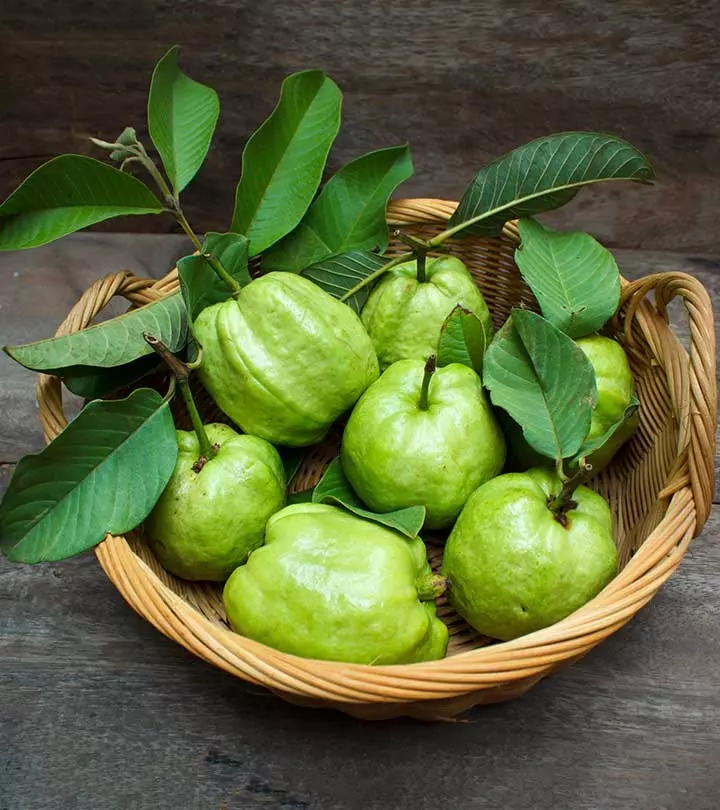




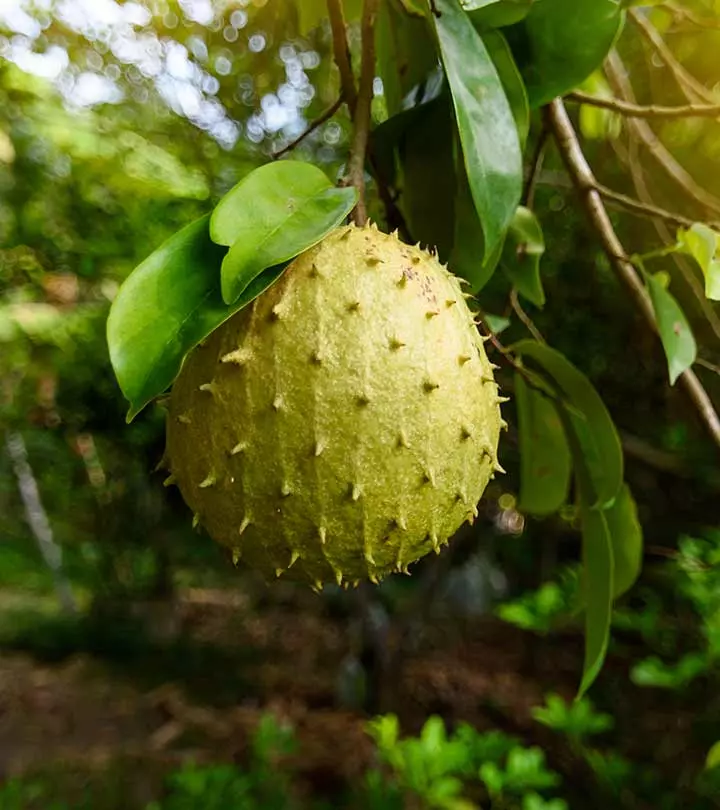
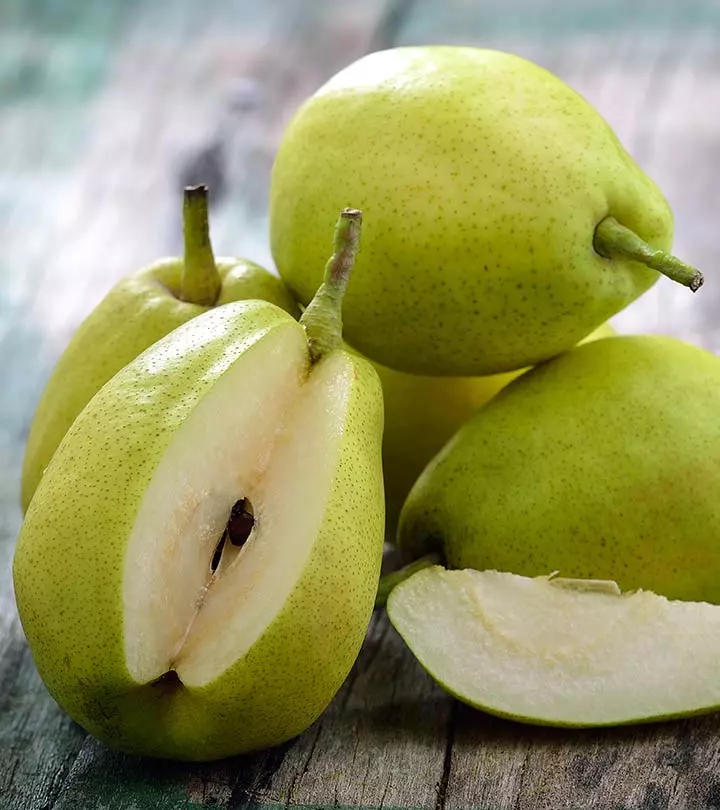





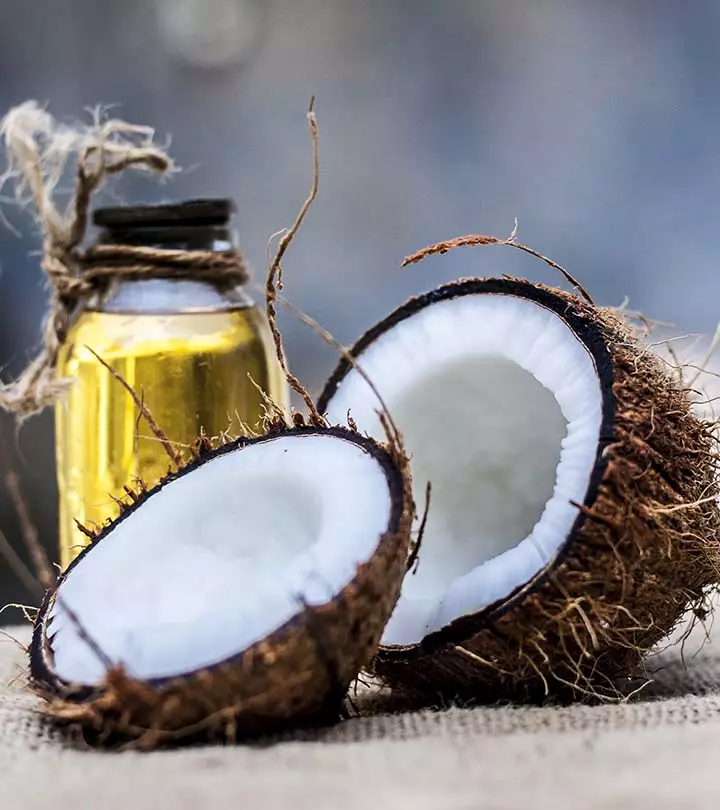
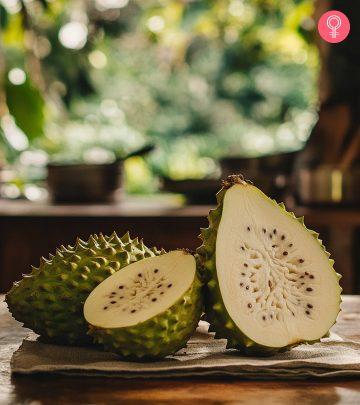






Community Experiences
Join the conversation and become a part of our empowering community! Share your stories, experiences, and insights to connect with other beauty, lifestyle, and health enthusiasts.